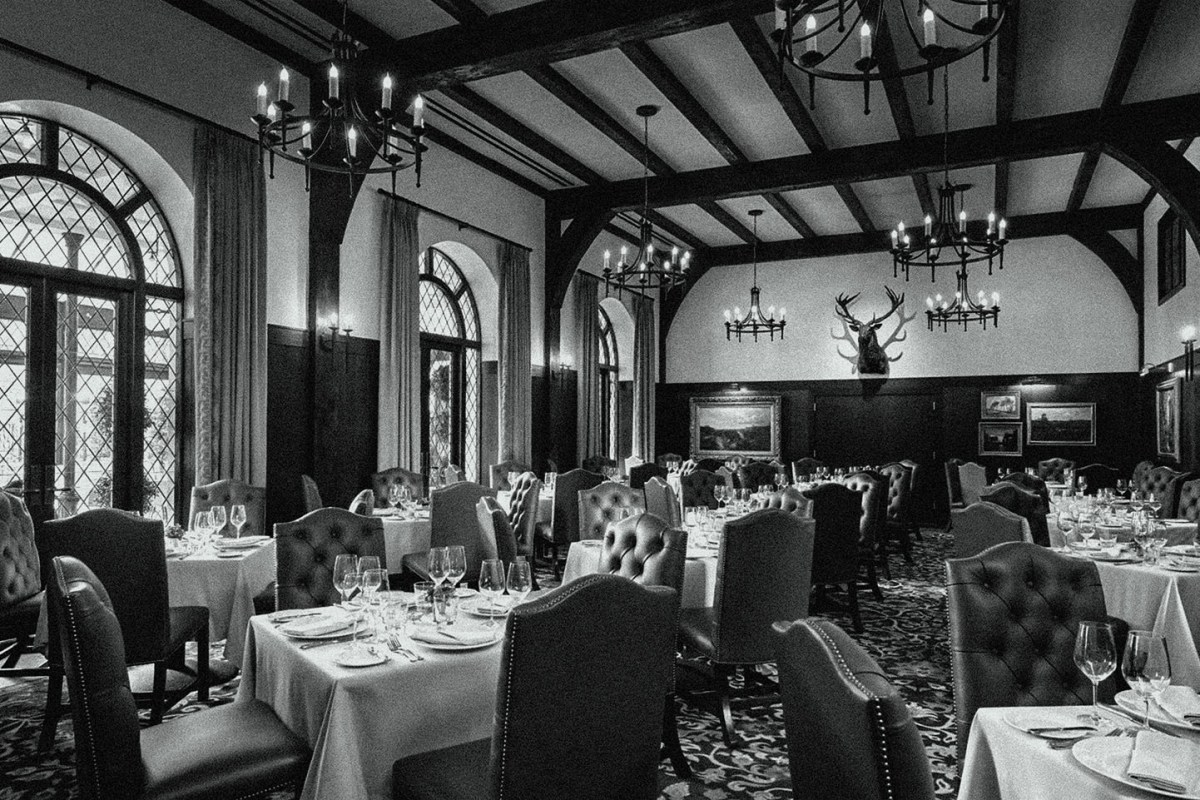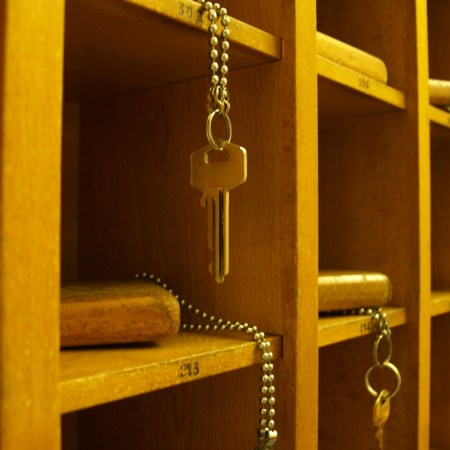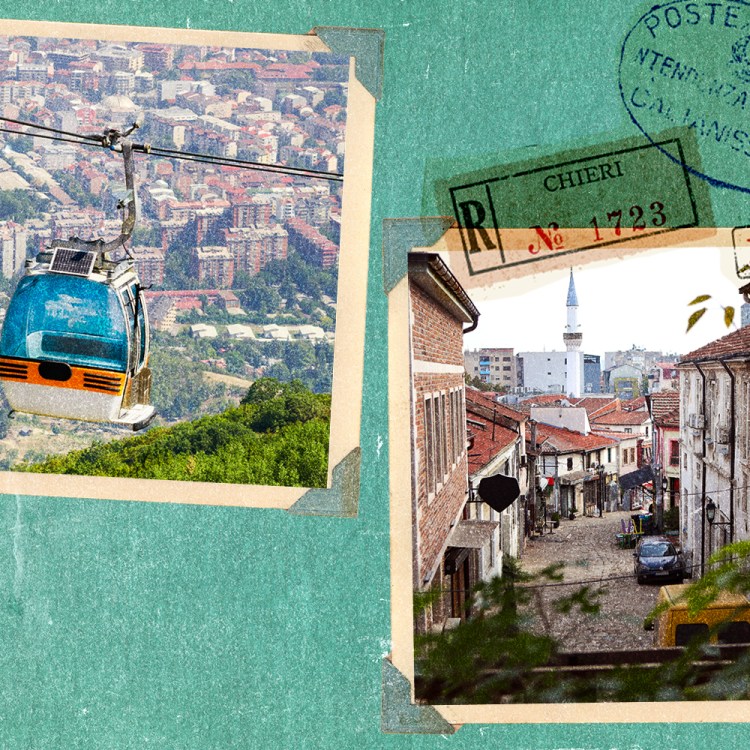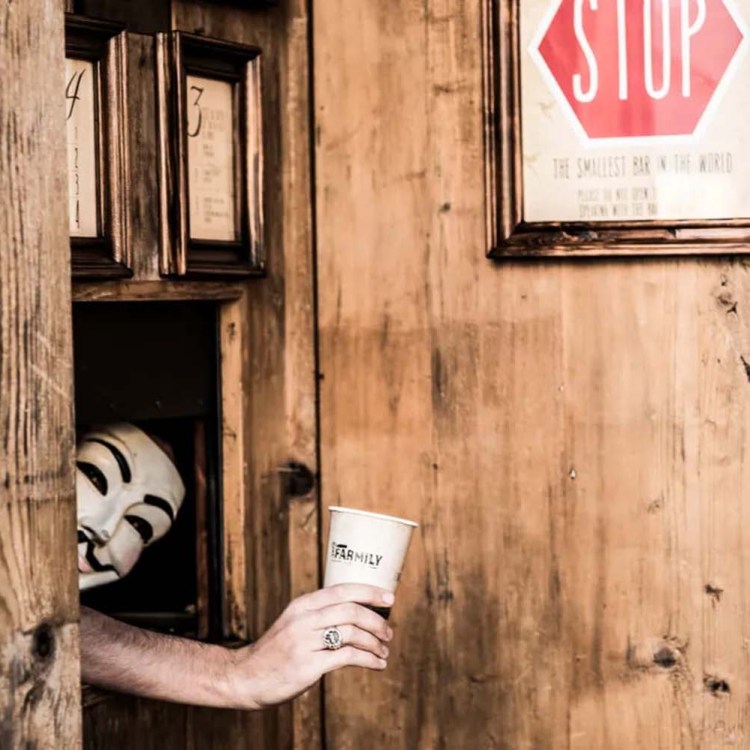Every day for the past five years, Matthew Barba has overseen operations at the Deer Path Inn in Lake Forest, Illinois, just 45 minutes north of Chicago. As an innkeeper, Mr. Barba’s job is to get the old manor house up and running every morning, and it starts early. By the time the first guests roll out of bed and head downstairs, food is cooking in the kitchen and tables have been set in the English Room. Staff walk the halls, getting rooms ready for the afternoon check-ins as locals pop in for coffee or a friendly get-together. Businessmen regularly hold meetings in the lounge area or two boardrooms, and by lunchtime you’ll find guests mixing with locals in the courtyard, people ordering bangers and mash or fish and chips in the Pub.
By late afternoon, after English tea has been served and bled into happy hour, people can sit and wait for an hour on a dinner table at the ever-popular Bar (yes, Pub and Bar are the names). You can hear people chatting and laughing. As the doors to Windsor Hall open, you may hear a wedding going on. And just as quickly as it started, it comes to an end, with just a few hours before it’s time to do it all again.
But the constant juggling of an innkeeper, especially at one of America’s most popular overnight destinations, has come to a screeching halt. As the outbreak of the novel coronavirus COVID-19 has shuttered businesses across Illinois, the Deer Path Inn finds itself like so many other inns and hotels across America: closed until further notice.
“We don’t have a crystal ball,” Mr. Barba tells InsideHook, discussing the business plan moving forward. “We’re just taking it one day at a time.”
But Deer Path is trying to make the most of that time. They’ve started on small work projects around the 160-year-old structure to spruce it up. They’ve moved out furniture to deep-clean the rooms and brought in HVAC people to maintain the mechanical systems. They’re retraining staff and implementing a new point of sales system. And Mr. Barba, on his end, has seen employees step up in unexpected ways. Some of the staff organized an auction, with some of the proceeds going directly to local businesses that are getting hit hardest during the pandemic. Staff members, for their part, have helped Barba ramp up the Instagram feed, and are offering genuinely funny, modern takes on what old English paintings can tell us about our current lives of boredom and constant isolation. And like other overnight properties that can boast a full-service restaurant, they have pivoted to curbside food service to keep the business moving.
“Carry-out orders online are long-winded interactions now,” Mr. Barba jokes. “Even the folks that are taking the carry-out curbside, we’re all looking out the window like, ‘Who’s that? Oh, go say hi!’”
But historic inns are a niche market in an industry that has traditionally been dominated by corporate hotels and is increasingly pressed by Airbnb. With their smaller capacities and attention to bespoke travel experiences, they often rely on seasonal tourists and repeat customers who are just as interested in the history of the property and knowing the innkeepers by name as they are the nearby attractions. And for every inn like Deer Path that’s trying to put a positive spin on the current situation, there are hundreds more suffering immensely under the mandated shutdowns and forced closures. The White Hart Inn in Salisbury, Connecticut, has laid off 85 percent of their staff. “We’d love to say we’ll be back open June 1,” says Dan Winkley, the Inn’s manager. “I don’t think that’s a possibility.”
Others, like The Rhett House Inn in Beaufort, South Carolina, have simply closed because businesses and tourists around them have dried up. “We’re definitely getting killed by this,” Steve Harrison, owner of The Rhett House Inn, tells InsideHook. “It’s like a ghost town. And the rumors are rampant. You shouldn’t even talk to people because the virus is in the air. And it can be transferred from just talking to somebody even five feet or six feet away. That was crazy. That’s not true. You know what, I don’t know what’s true.”
As people around the country continue to shelter in place and cancel their summer plans, it’s unclear whether the hotel industry will be up and running by late summer, or if it will even be back on its feet by the middle of the fall, in time for the holiday high season. But when the pandemic does subside and people start traveling and checking-in to historic inns across America, high-traffic areas will undoubtedly be in the best positions. With Parris Island nearby and its long enticement of southern charm, The Rhett House has the town of Beaufort and its centuries-old buildings to call people back. For places like Deer Path, it helps to be embedded in the fabric of an upscale neighborhood. But for those in more rural areas, like The Stagecoach Inn in Salado, Texas, it’s clear that staying open feels like the only option at the moment.
What’s currently missing at historic inns is the people. The customers that help keep the lights on and staff moving. But we as consumers are missing just as much with their closures. We can all go online and check out the virtual history that museums are pushing out, we can stay engaged with our loved ones and friends through Facetime or Zoom, but none of this can replace the feeling of seeing history in person. When you step into a 200-year-old building, you’re reminded of the people that have crossed the thresholds before you, sat at the tables and had drinks at the bars, slept in the beds or stood by the windows while consumed with worry. There’s a reason every historic inn touts its longevity and near disasters on its website, just as Mr. Barba reminded me of the fire that swept across Deer Path Inn in 1938. Part of their charm is what they’ve seen and stood through, from the Civil War to the current pandemic, and everything in between.
As Mr. Harrison says, “This too shall pass.” And it certainly will. These buildings will still be standing long after the pandemic recedes, and Americans are finally looking for places to sleep besides their homes. But what we don’t know is what happens in the meantime, and how much tragic history these inns will witness before it’s all done.
This article appeared in an InsideHook newsletter. Sign up for free to get more on travel, wellness, style, drinking, and culture.



















